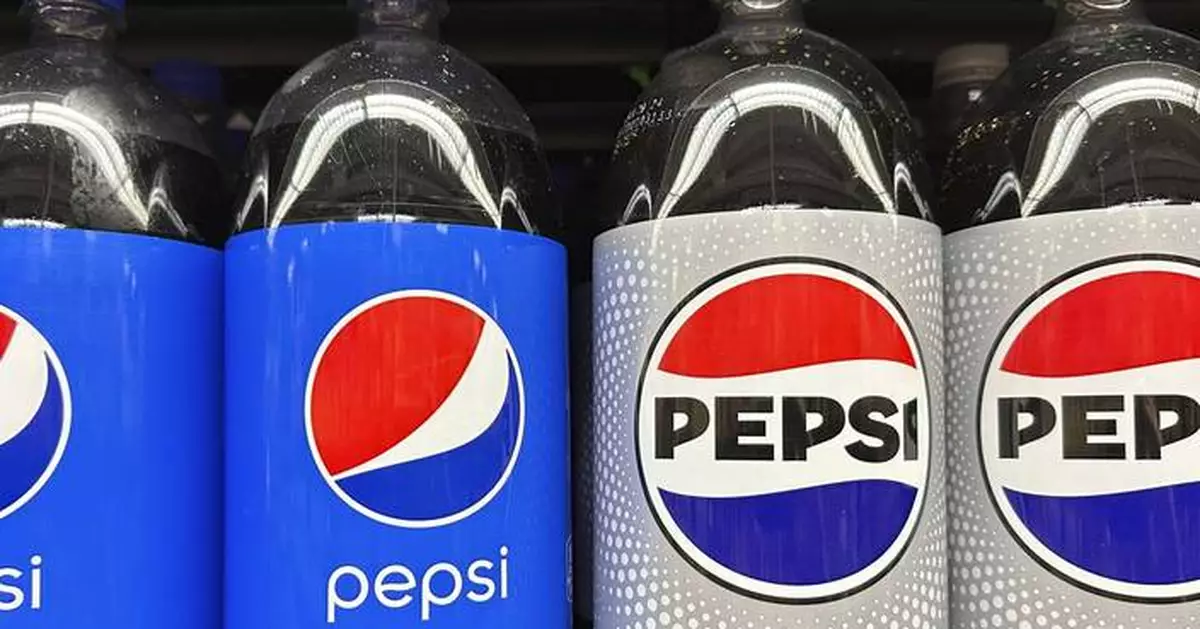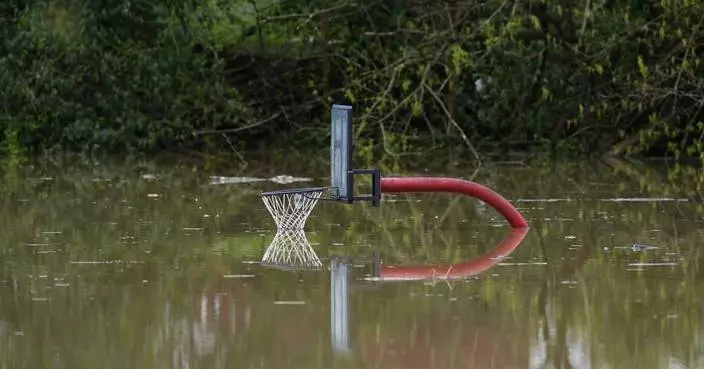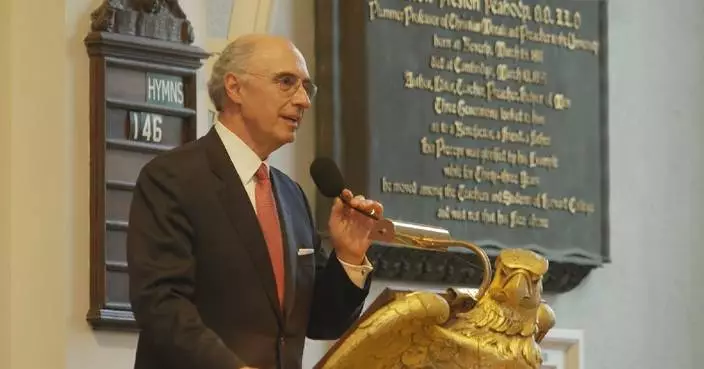The Rev. Al Sharpton is giving PepsiCo three weeks to meet with him — or suffer a boycott — to discuss reversing the company’s recent move to do away with its diversity, equity and inclusion initiatives, according to a letter shared with The Associated Press.
On Friday, Sharpton wrote to PepsiCo CEO Ramon Laguarta expressing his “profound disappointment” that the company would end inclusion commitments that both helped build its brand and fostered trust with millions of its customers.
“You have walked away from equity,” Sharpton wrote in the letter, adding that removing DEI hiring and retention goals and dismantling community partnerships with minority organizations “are clear signals that political pressure has outweighed principle.”
Sharpton, founder and president of the National Action Network, announced in January that the civil rights organization would identify two companies in the next 90 days that will be boycotted for abandoning their DEI pledges.
A spokesperson for PepsiCo said it had not received the letter and was unable to comment.
PepsiCo is one of the largest food and beverage companies in North America. Its brands include Gatorade, Lay’s potato chips, Doritos, Mountain Dew as well as Pepsi.
In a memo sent to employees in February, Laguarta said the company will no longer set goals for minority representation in its managerial roles or supplier base.
Since President Donald Trump returned to the White House earlier this year, U.S. government agencies, companies and schools have scrambled to reevaluate policies and programs aimed at increasing diversity among its employees and reducing discrimination against members of minority groups, women and LGBTQ+ people.
Trump ended DEI programs within the federal government and has warned schools to do the same or risk losing federal money. Large retailers like Walmart and Target have also phased out DEI initiatives since Trump took office.
Following decades of activism and protests by marginalized groups, several pieces of legislation and executive orders in the 1960’s laid the groundwork for what would become known today as the Diversity, Equity, and Inclusion movement in the workplace. In the 1970’s, in response to the new laws and regulations, affirmative action policies were introduced, employee resource groups started to emerge, and businesses began implementing diversity trainings. This led to increased hiring of women and minorities.
By the 1980’s, new studies began highlighting the business incentive for fostering inclusive workplaces. Focus shifted from compliance with the law to “creating an environment where everybody feels that they can achieve their highest goal,” said Mary-Frances Winters, an author and strategist focusing on diversity and organizational development. “This was really about looking at changing demographics, looking at who was coming into the workforce and also looking at how people with different backgrounds can lead to greater innovation,” Winters said.
Research continued to emphasize that diversity in the workplace was a matter of business survival, with some businesses even beginning to mandate cultural competency within leadership. PepsiCo was one of those companies, Sharpton pointed out in his letter.
In the 1940s and 1950s, PepsiCo hired some of the first Black sales and marketing executives in corporate America, Sharpton wrote, and by the 1980’s the company’s policies led to the creation of Black consumer advisory boards.
“You did this not because it was easy — but because it was right,” Sharpton wrote in the letter. “That legacy is now in jeopardy.”
In the early 2000's, Sharpton sat on PepsiCo's African American advisory board.
PepsiCo’s announcement in February that it would rollback inclusion efforts came as Coca-Cola reaffirmed support for its DEI efforts. In its annual report, Atlanta-based Coke warned that the inability to attract employees that reflect its broad range of customers could negatively affect its business.
“Failure to maintain a corporate culture that fosters innovation, collaboration and inclusion … could disrupt our operations and adversely affect our business and our future success,” the company said.
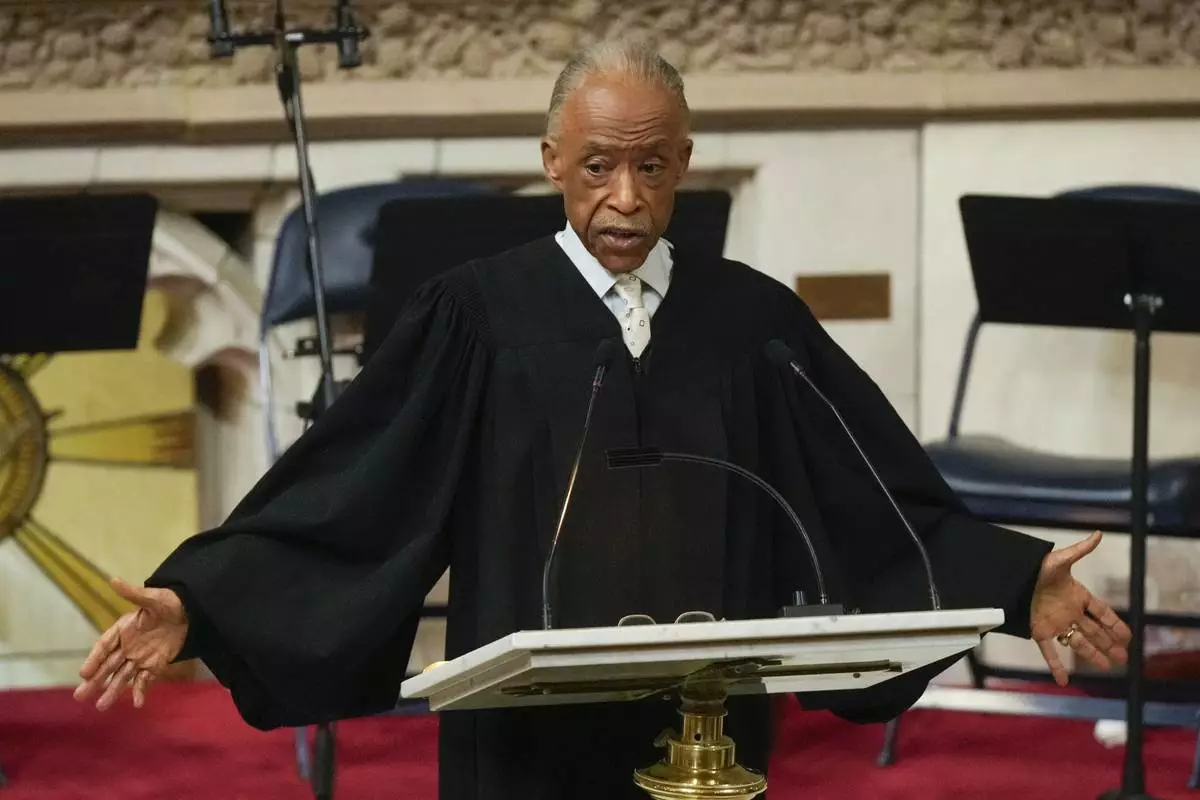
FILE - Al Sharpton speaks during a ceremony in celebration of Roberta Flack's life at The Abyssinian Baptist Church on Monday, March 10, 2025, in New York. (AP Photo/Richard Drew, File)
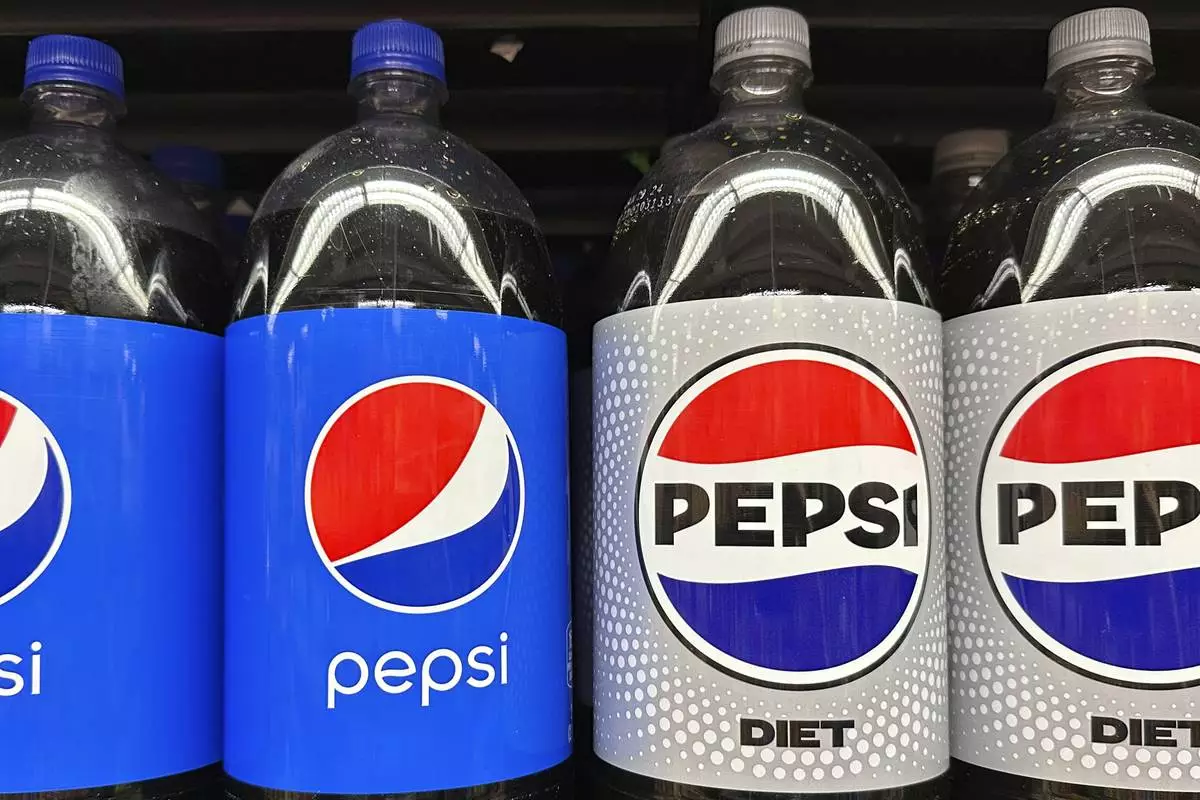
FILE - Plastic bottles of Pepsi are displayed at a grocery store in New York on Nov. 15, 2023. (AP Photo/Ted Shaffrey, File)
DEIR AL-BALAH, Gaza Strip (AP) — Israeli strikes in the Gaza Strip killed at least 32 people, including over a dozen women and children, local health officials said Sunday, as Israeli Prime Minister Benjamin Netanyahu headed to the United States to meet with President Donald Trump about the war.
Israel last month ended its ceasefire with Hamas and has seized territory to pressure the militant group to accept a new deal for a truce and release of remaining hostages. It has blocked the import of food, fuel and other supplies for over a month to the coastal territory heavily reliant on outside assistance.
Israel's military late Sunday ordered Palestinians to evacuate several neighborhoods in central Gaza's Deir al-Balah shortly after about 10 projectiles were fired from Gaza — the largest barrage from the territory since Israel resumed the war.
The military said about five were intercepted. Hamas’ military arm claimed responsibility. Police said a rocket fell in Ashkelon city and fragments fell in several other areas. The Magen David Adom emergency service said one man was lightly injured. The military later said it struck a rocket launcher in Gaza.
Israeli strikes overnight into Sunday hit a tent and a house in the southern city of Khan Younis, killing five men, five women and five children, according to Nasser Hospital, which received the bodies.
The body of a toddler took up one end of an emergency stretcher.
A female journalist was among the dead. “My daughter is innocent. She had no involvement, she loved journalism and adored it,” said her mother, Amal Kaskeen.
“Trump wants to end the Gaza issue. He is in a hurry, and that is clear from this morning,” said Mohammad Abdel-Hadi, cousin of a woman killed.
Israeli shelling killed at least four people in the Jabaliya refugee camp in northern Gaza, according to Gaza's Health Ministry. The bodies of seven people, including a child and three women, arrived at Al-Aqsa Martyrs Hospital in Deir al-Balah, according to an Associated Press journalist there.
And a strike in Gaza City hit people waiting outside a bakery and killed at least six, including three children, according to the civil defense, which operates under the Hamas-run government.
Dozens of Palestinians took to the streets in Jabaliya for new anti-war protests. Footage on social media showed people marching and chanting against Hamas. Such protests, while rare, have occurred in recent weeks.
There is also anger inside Israel over the war's resumption and its effects on remaining hostages in Gaza. Families of hostages along with some of those recently freed from Gaza and their supporters have urged Trump to help ensure the fighting ends.
Netanyahu on Monday will meet with Trump for the second time since Trump began his latest term in January. The prime minister said they would discuss the war and the new 17% tariff imposed on Israel, part of a sweeping global decision by the U.S.
“There is a very large queue of leaders who want to do this with respect to their economies. I think it reflects the special personal connection and the special connection between the United States and Israel, which is so vital at this time,” Netanyahu said while wrapping up a visit to Hungary.
The U.S., a mediator in ceasefire efforts along with Egypt and Qatar, had expressed support for Israel's resumption of the war last month.
Hundreds of Palestinians since then have been killed, among them 15 medics whose bodies were recovered only a week later. Israel's military this weekend backtracked on its account of what happened in the incident, captured in part on video, that angered Red Cross and Red Crescent and U.N. officials.
The war began when Hamas-led militants attacked Israel on Oct. 7, 2023, killing some 1,200 people and taking 251 hostage. Fifty-nine hostages are still held in Gaza — 24 believed to be alive.
Israel’s offensive has killed at least 50,695 Palestinians, according to Gaza’s Health Ministry, which does not say how many were civilians or combatants but says more than half were women and children. Israel says it has killed around 20,000 militants, without providing evidence.
Early Monday, strikes hit inside the compound of Al Aqsa Martyrs Hospital, where an Associated Press camera caught the sound of the explosions. Smoke and fire were seen from distance, and there were no immediate reports of casualties.
The Palestinian Health Ministry in the occupied West Bank said one Palestinian-American teen was killed and two others were injured — one in critical condition — and asserted that Israeli settlers had shot them.
Israel's military said it was looking into the incident in Turmus Ayya town, which is near Jerusalem and has a large population of Palestinian-Americans.
The war in Gaza has sparked a surge of violence in the West Bank, with Israel's military carrying out military operations that have killed hundreds of Palestinians and displaced tens of thousands. There has been a rise in settler violence as well as Palestinian attacks on Israelis.
Associated Press writer Natalie Melzer in Tel Aviv, Israel, contributed to this report.
Follow AP’s war coverage at https://apnews.com/hub/israel-hamas-war
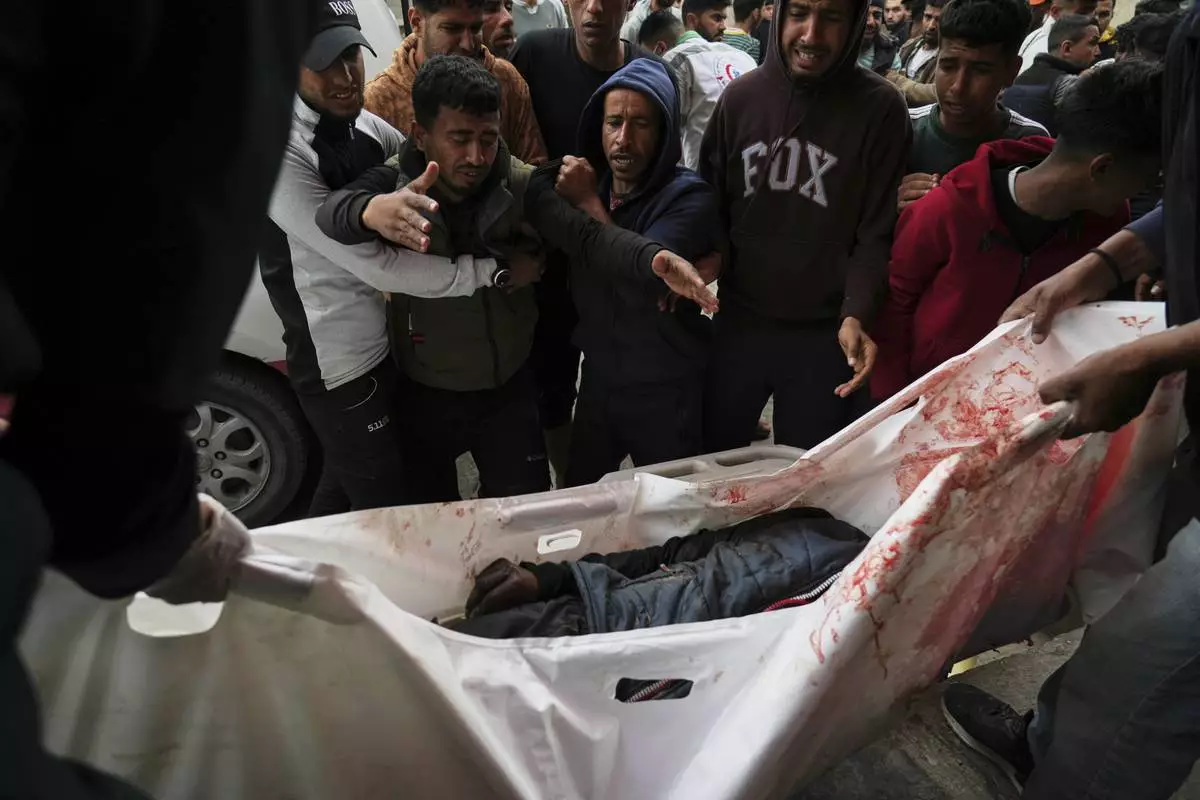
The body of Palestinian Ramzi Abu Maghaseem killed by an Israeli army bombardment is brought to a hospital in Deir al-Balah, Gaza Strip on Sunday, April 6, 2025. (AP Photo/Abdel Kareem Hana)
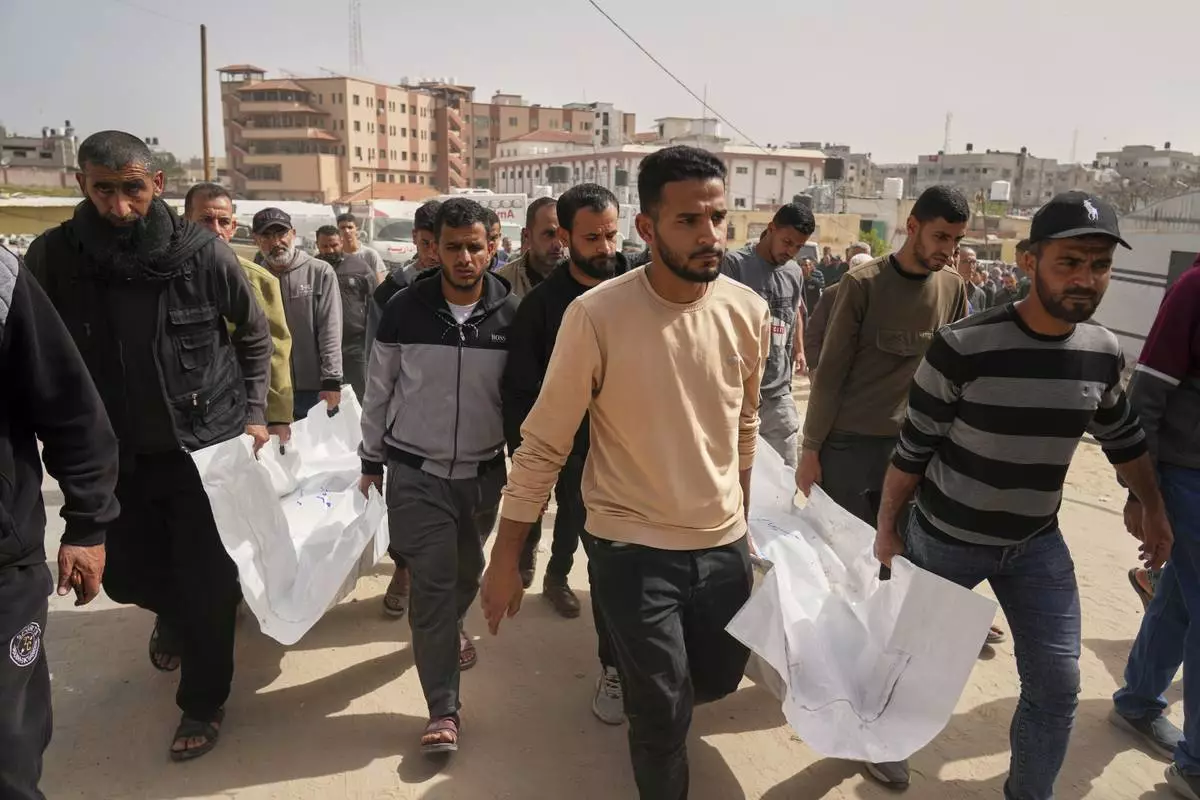
Palestinians carry the bodies of two of the 15 people killed overnight in two Israeli army strikes during their funeral in Khan Younis, southern Gaza Strip, Sunday, April 6, 2025. (AP Photo/Abdel Kareem Hana)
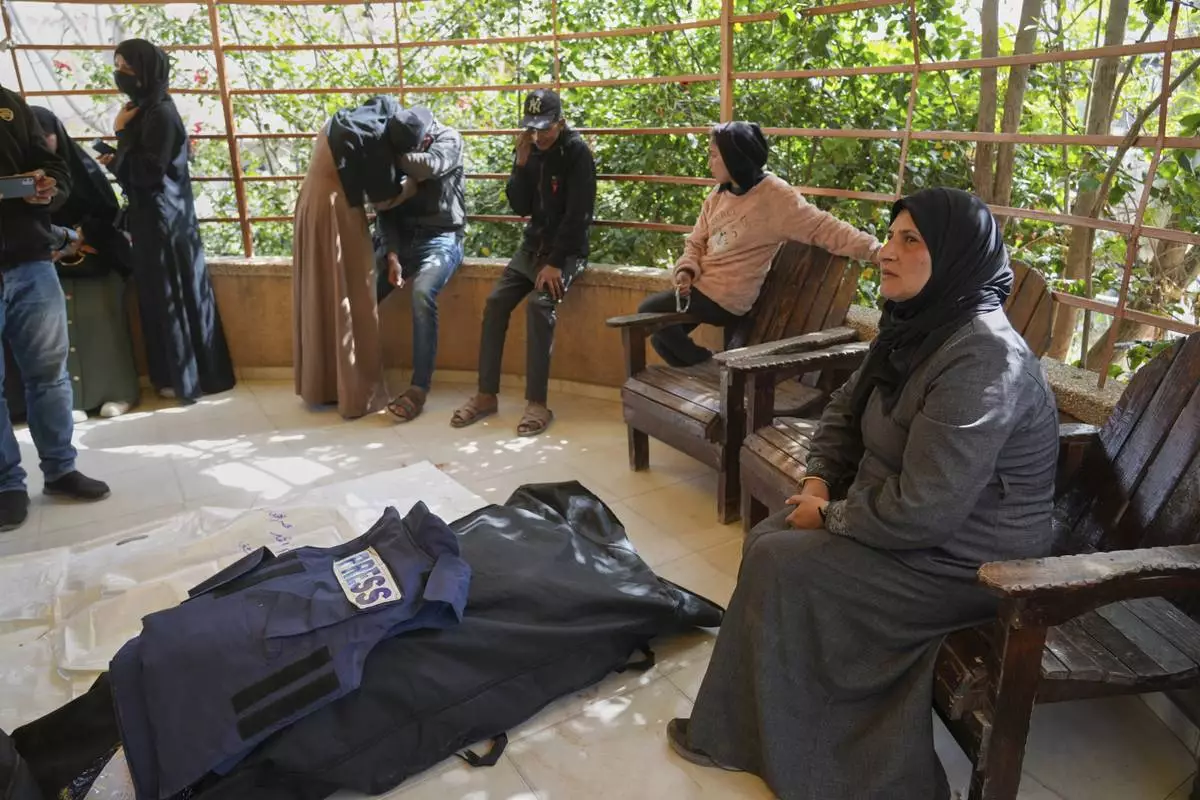
The body of journalist Islam Meqdad, killed along with her son and five other family members in an Israeli army strike on their house, lies on the floor at Nasser Hospital before her burial in Khan Younis, southern Gaza Strip, Sunday, April 6, 2025. (AP Photo/Abdel Kareem Hana)
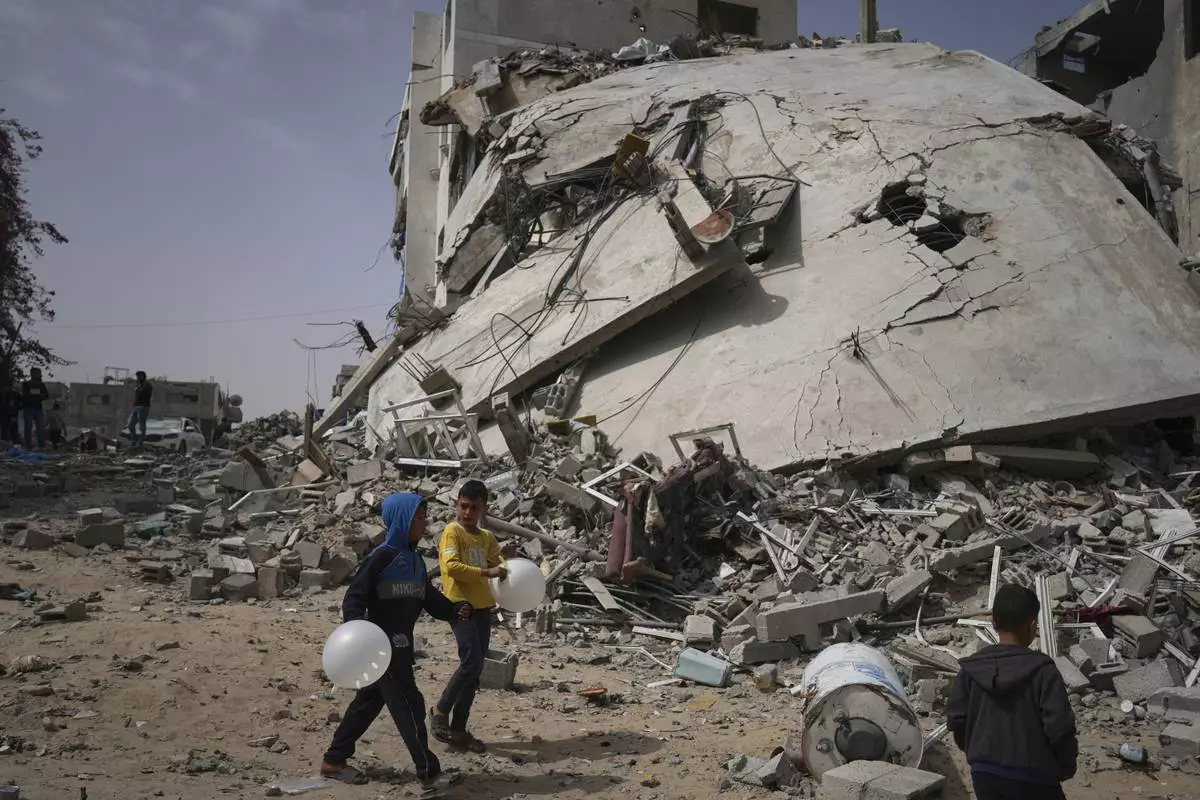
Children walk by the destroyed house of journalist Islam Meqdad, where she was killed along with her son and five other family members in an Israeli army strike in Khan Younis, southern Gaza Strip, Sunday, April 6, 2025. (AP Photo/Abdel Kareem Hana)
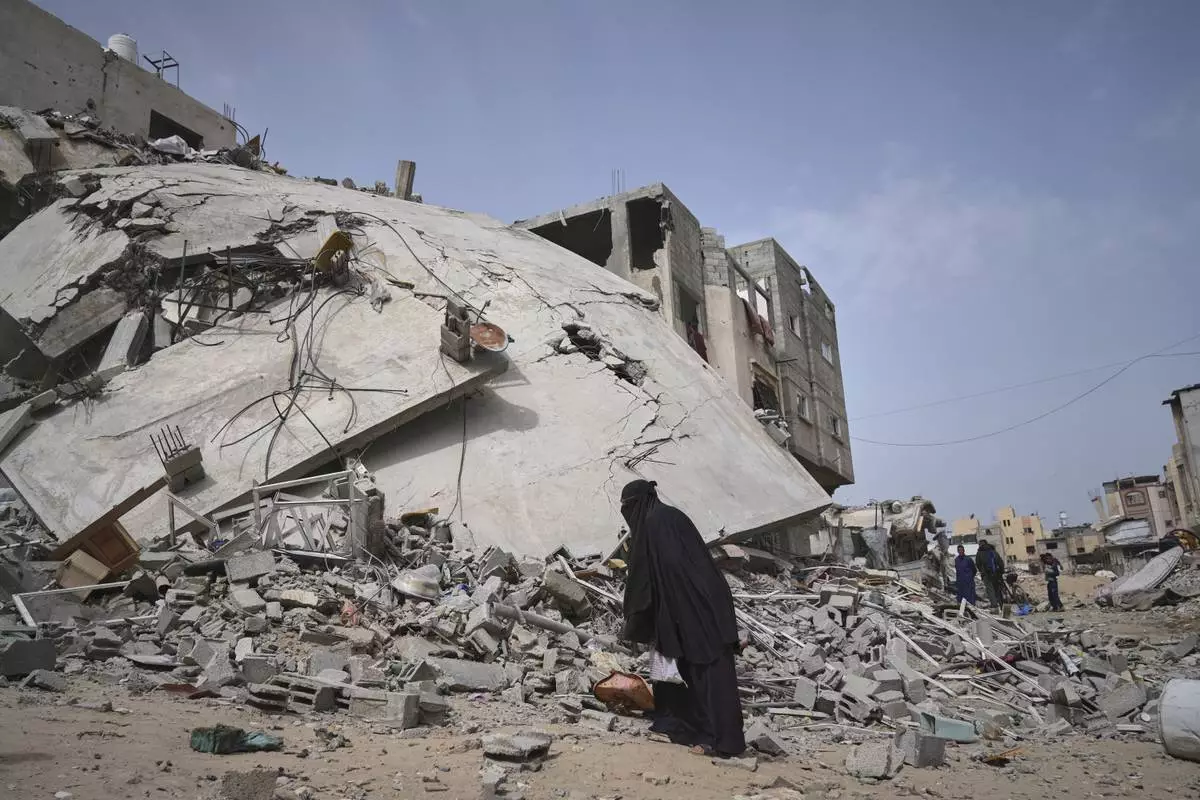
A Oman looks at the destroyed house of journalist Islam Meqdad, where she was killed along with her son and five other family members in an Israeli army strike in Khan Younis, southern Gaza Strip, Sunday, April 6, 2025. (AP Photo/Abdel Kareem Hana)
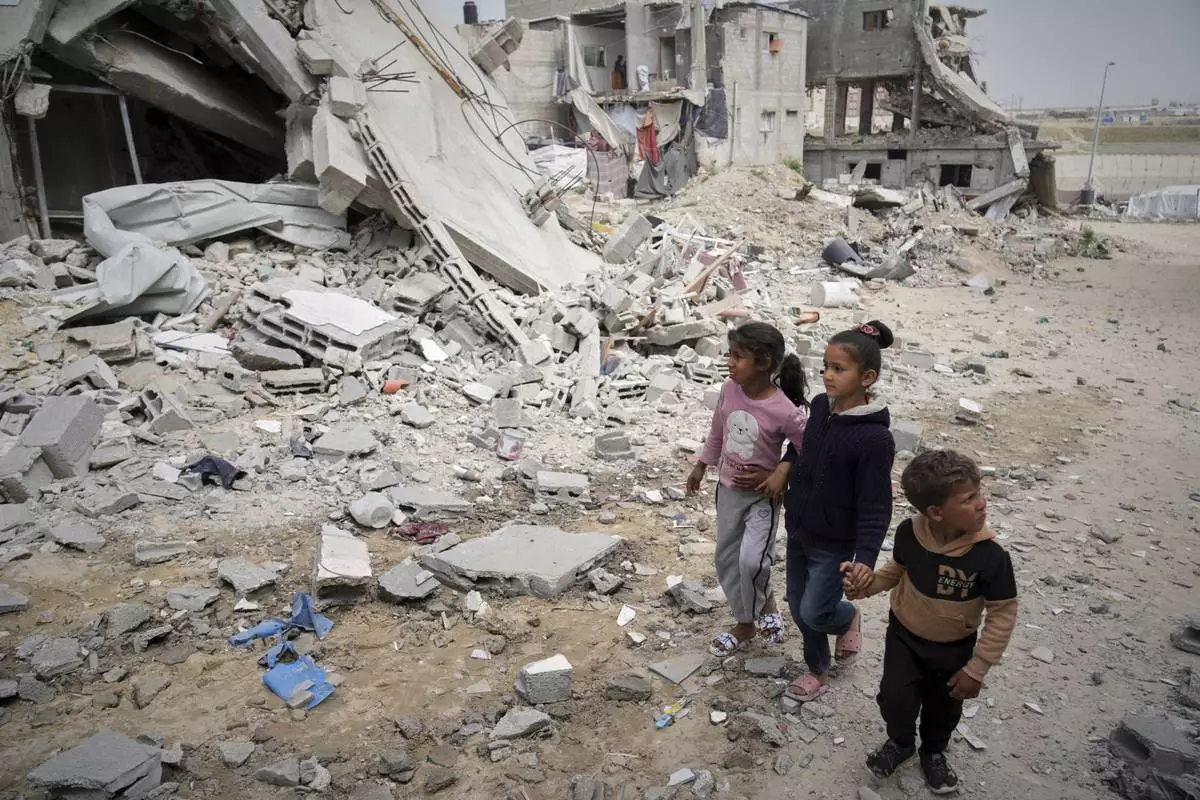
Children walk by the destroyed house of journalist Islam Meqdad, where she was killed along with her son and five other family members in an Israeli army strike in Khan Younis, southern Gaza Strip, Sunday, April 6, 2025. (AP Photo/Abdel Kareem Hana)
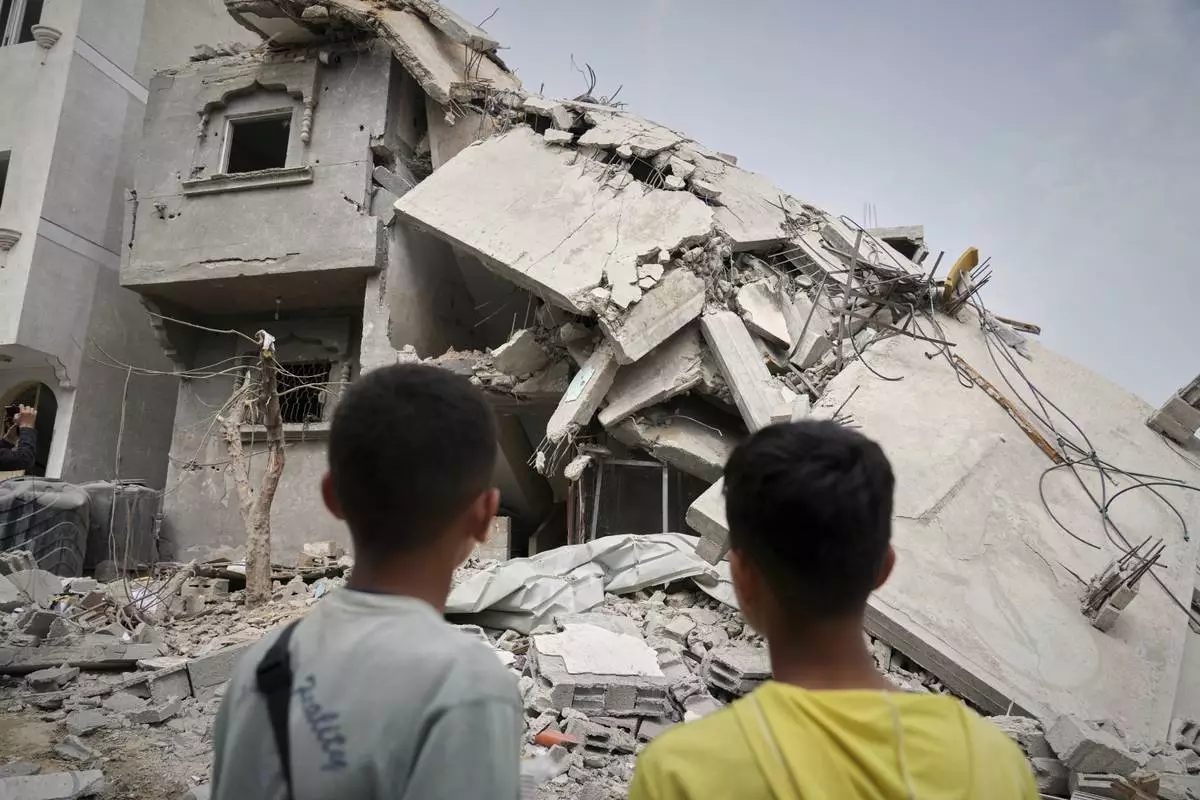
Children look at the destroyed house of journalist Islam Meqdad, where she was killed along with her son and five other family members in an Israeli army strike in Khan Younis, southern Gaza Strip, Sunday, April 6, 2025. (AP Photo/Abdel Kareem Hana)
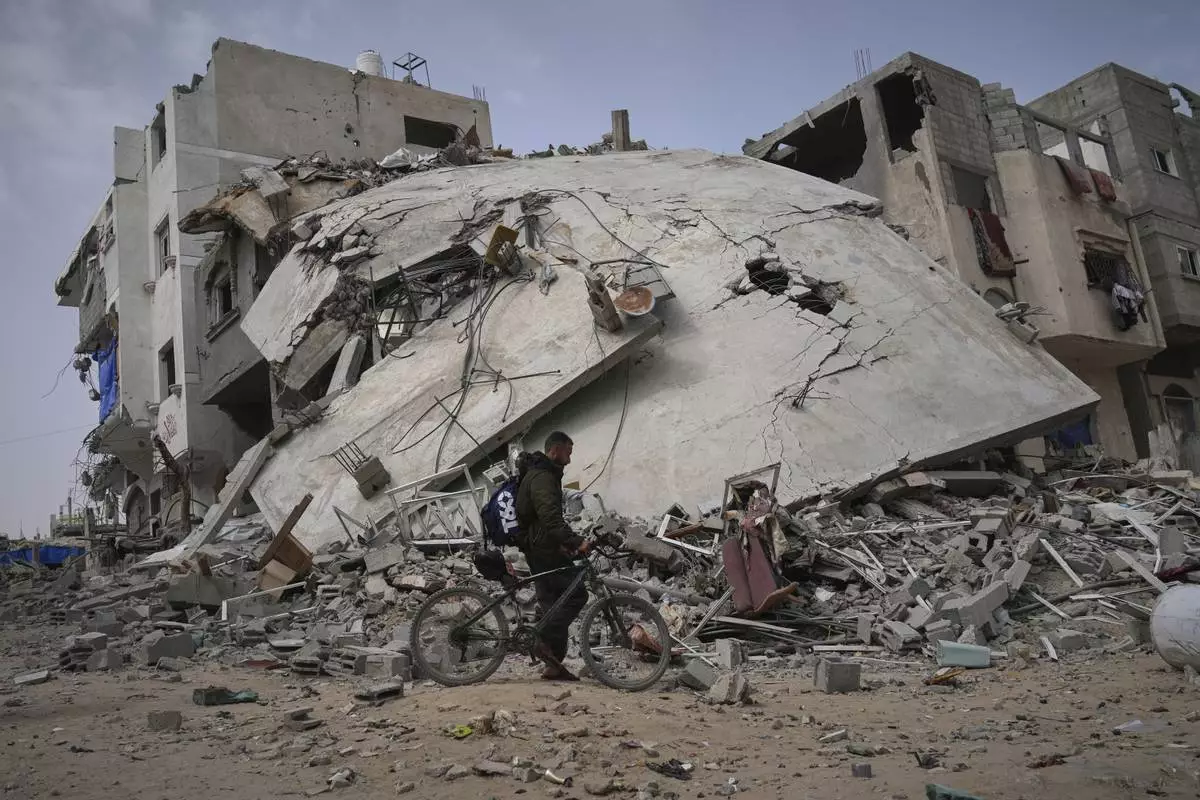
A man passes by the destroyed house of journalist Islam Meqdad, where she was killed along with her son and five other family members in an Israeli army strike in Khan Younis, southern Gaza Strip, Sunday, April 6, 2025. (AP Photo/Abdel Kareem Hana)
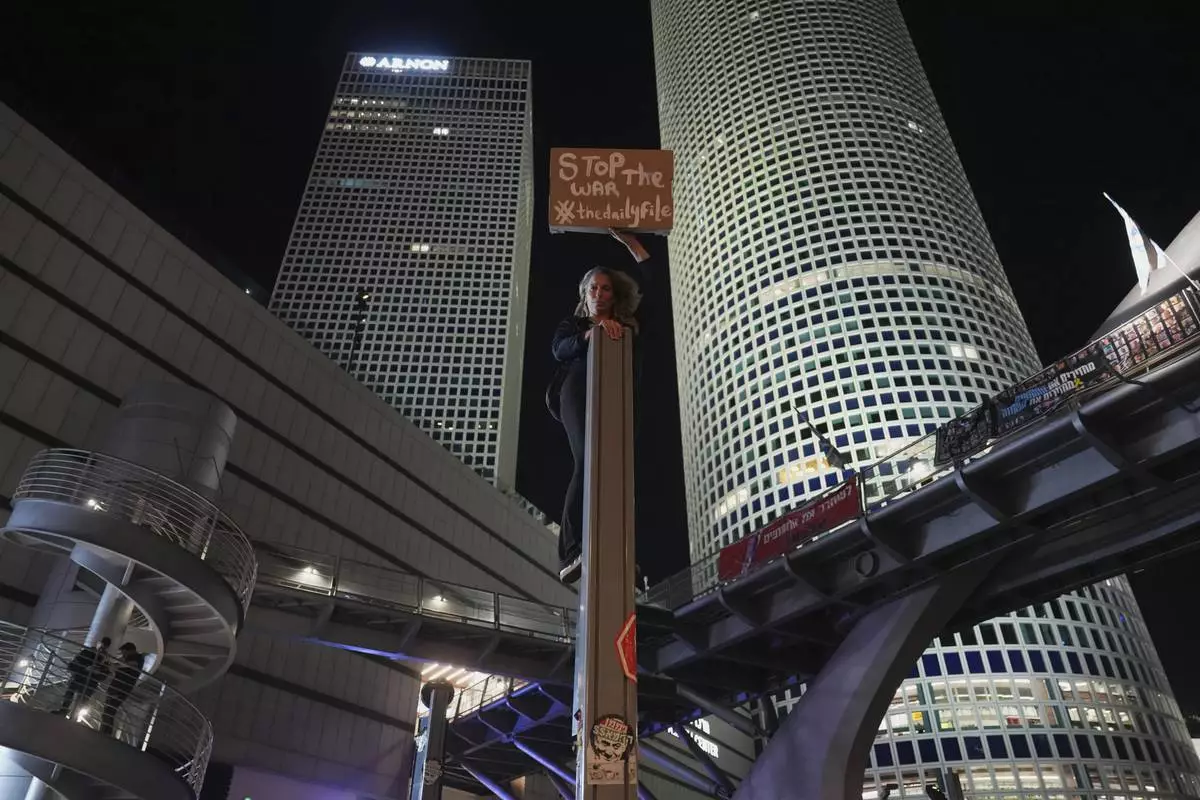
A woman holds a sign as people take part in a protest demanding the immediate release of hostages held by Hamas in the Gaza Strip, in Tel Aviv, Israel, Saturday, April 5,2025. (AP Photo/Ariel Schalit)
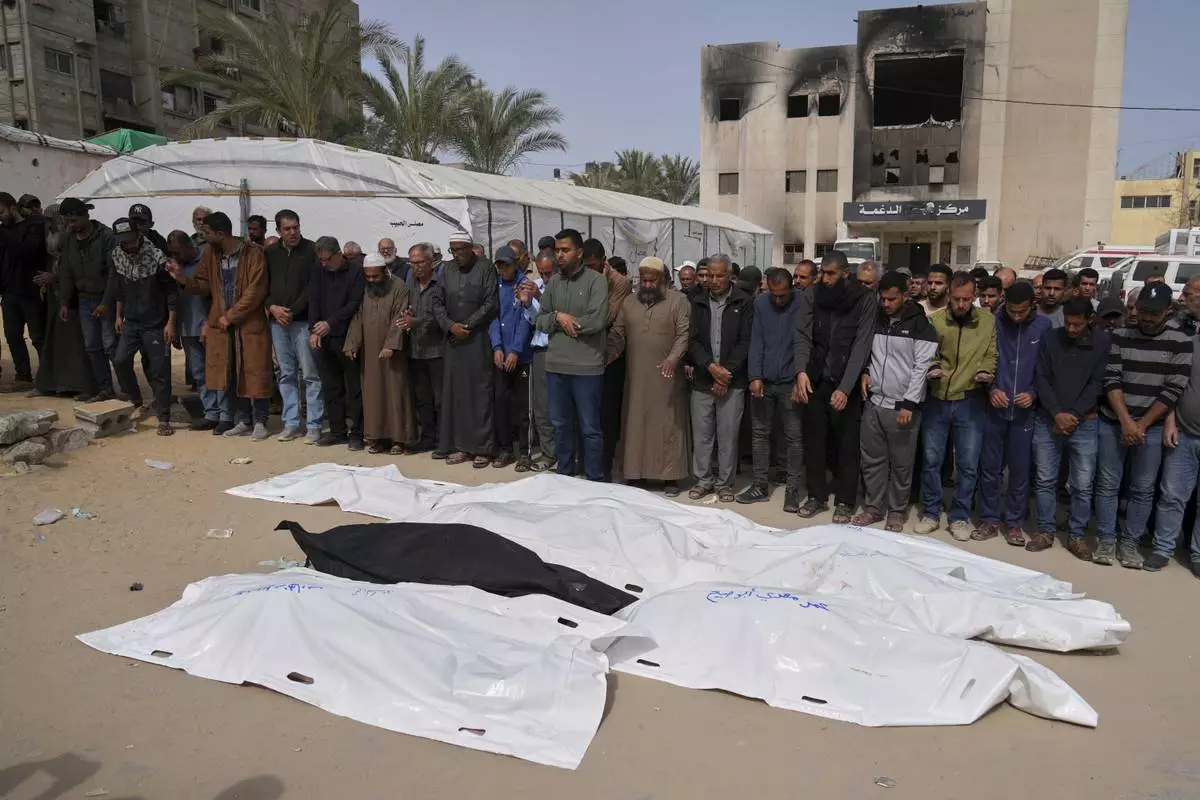
Palestinians pray over the bodies of some of the 15 people, including 5 children and 5 women, killed in two Israeli army strikes during their funeral in Khan Younis, southern Gaza Strip, on Sunday, April 6, 2025. (AP Photo/Abdel Kareem Hana)




